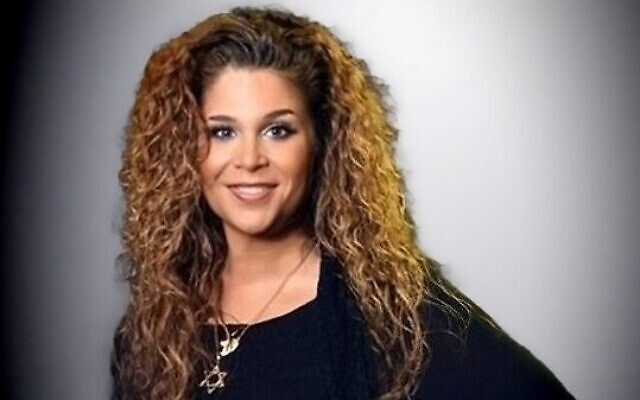Kaylene Ladinsky’s Chanukah Message for 2023
Atlanta Jewish Times staff wishes our community Happy Chanukah from our AJT family to yours.
In addition to being the AJT’s managing publisher and interim editor, Kaylene Ladinsky is the president of Americans United With Israel.
Spreading Light in the Face of Overwhelming Darkness
Wikipedia summarizes Chanukah as a Jewish holiday which celebrates the victory of the Maccabees over the Syrian army. It also celebrates a miracle that happened during this time, where just a day’s supply of oil allowed the menorah in the rededicated Temple in Jerusalem to remain lit for eight days.
The menorah was introduced in the Book of Exodus in the Torah. G‑d specified that the Tabernacle and then later the Holy Temple in Jerusalem must contain six holy vessels. In addition to the Holy Ark, the showbread table, two altars; one gold and one copper, and a laver; where the Priests would wash their hands and feet, was the menorah, or the candelabra, which has since become a symbol of the Jewish people.
In Exodus chapter 25 G-d instructs exactly how to make the candelabra, and notes that it is made of a lump of pure gold and has seven branches. One of the major daily services, the high priest, was kindling the candelabra. The verse, however, uses an unusual expression for this task — “when you will raise up the lamps,” rather than the more common expression, “to light the lamps.”
Based on a verse in Zechariah which compares the Jewish people to a golden candelabra, explains that each of the seven lamps of the candelabra corresponds to one of the seven holy character traits: kindness (chesed), austerity (gevurah), compassion (tiferet), etc.
Each of the menorah’s seven lamps was filled with pure olive oil and a wick which was kindled daily. Preparation of the lamps appears to have been even more important than the lighting itself. Any Jew was qualified to light the menorah, but only Aaron and his descendants were allowed to perform the preparation. Each lamp was filled with a half log of oil, which was enough to burn through the longest winter night.
Obviously, the miracle of Chanukah that I can relate to most is that each of us have our own characteristics that illuminates our Jewish values. Together as a community we can illuminate miles and miles to combat any darkness.
What is most reminiscent about the Israel-Hamas War and the story of Chanukah is conflict and the act of war itself. We may then ask: Is it even permitted according to Jewish law to put oneself in such certain danger?
Of course, according to the Torah, war is permitted when circumstances warrant it. In some cases, it is even obligatory.
War is dangerous and typically leads to many deaths. But one wages war with the objective of being victorious, and the losses are the price of conflict. Here, however, the war seemed totally hopeless, as there seemed to be no way that it could have ended in anything other than total defeat.
In hindsight, we know that “a great miracle happened there,” and a historic victory was achieved. But the Jews could not have known this would happen. Based on the facts available to them, their objective was impossible to achieve, and was destined to result in deadly consequences. By what right did the Maccabees initiate a conflict that, according to any reasonable assessment, was going to conclude in carnage?
It is therefore central to the conflict in the Chanukah story that it was waged by the priests. They were the ones who needed to be prepared to make the ultimate sacrifice to prevent Judaism from slipping into oblivion. It mattered little to them how great the risk was, or how poor their chances of survival. They were not standing up for a single mitzvah; they were defending the entire faith.
By instigating a war against the Greeks, regardless of the risk or the cost, the Maccabees were making a statement for their generation, and for all generations to come: There are people of stature who will never reconcile themselves with the destruction of Judaism.
There is nothing that hurts me more than violence, war or fighting on any level. But this conflict is one where Israel is standing up for their right to exist and to stop the terrorism in the streets. Their act of supreme courage stands as a beacon for all eternity, that when it comes to the survival of Judaism there is no way we will ever capitulate. No matter the size or power of the opposition, and irrespective of their ruthlessness, we will stand our ground.
When we kindle our Chanukah candles each year, the lights that glow are the spirit of faith and determination of the Maccabees. We recall their commitment to spreading light in the face of overwhelming darkness. We carry their torch today. We need to have the courage of our convictions. That is today’s miracle.
Am Yisrael Chai!
Kaylene Ladinsky is editor and managing publisher of the Atlanta Jewish Times.
Resources: Chabad.org, including Rabbi Yossi Ives, and Wikipedia.com




comments